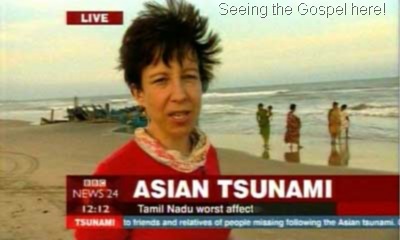...making 'bad news', 'Good News'!

Two posts in as many days - I'm doing well!
Today has been an odd day, I haven't got all that I wanted to do done, and yet I've done far more than I'd planned to do!
I booked my train ticket to London this morning - ouch! I can't quite see how extortionate prices are meant to encourage us to travel by train - unless we're meant to enjoy paying over the odds prices for a sub-standard service!
Anyway, having had my bank account drained, I then headed to church, where I was meeting with Martin for my weekly supervision.
This morning we discussed the first two chapters of "Preaching Pure and Simple" by Stuart Olyott.
Just these two chapters had me trawling through memories of sermons I've preached in the past, and swiftly repenting for my many failings - it's a sobering thing to consider the responsibility of opening God's Word and preaching it to
His covenant people!
I spent this afternoon preparing for the young peoples meeting tonight and choosing hymns etc. ready for leading the Sunday evening service here in Deeside.
I've also sent various e-mails and caught up on the backlog of admin that's been looming large at the edge of every day.
Anyway, I just wanted to briefly share some thoughts from an article I've just read by C.J. Mahaney.
I downloaded the article from the Sovereign Grace blog
Mahaney helpfully sets out, what he considers to be, the correct pastoral response when a local or national crisis grips the minds of a congregation.
I won't repeat what he said, you can read the article for yourself. However the one thing that struck me while I was reading it, is the need for us to be actively assessing, rather than passively accepting, what we view in the media.
There was a helpful quote from David Wells;
What is the difference between what we read about the “world” in the New Testament and what we read about in Time or Newsweek?…What is the difference between John and Time, Paul and Newsweek, when the “world” is in view?
The difference is that the biblical authors see everything from a theocentric viewpoint, and secular writers see everything from an anthropocentric viewpoint. That means that the biblical perspective must be seen as theological knowledge in its strictest sense: it is knowledge in relation to God, knowledge as defined by his character, acts, and will, knowledge that derives from him, knowledge that is no less authentic than the One who guarantees it. The biblical writers compel us to read the world from this perspective, to see it in relation to the moral character of God and the ways in which he has disclosed his saving intentions in human history. Secular writers, by contrast, force us to read the world from within a framework in which God’s moral will and saving intentions, his truth and his Christ, are never the criteria of meaning or importance.(David F. Wells, God in the Wasteland: The Reality of Truth in a World of Fading Dreams)
How often have I sat in front of the T.V. and let the news reports wash over me, and even found myself responding to the 'secular sermon' being preached by the news reporter?
Instead of just absorbing it all, we should be seeking to view the events in light of 'God's moral will and saving intentions, his truth and his Christ' and in doing so we grasp another much needed opportunity to preach the Gospel to ourselves!
Comments
Great Blog site - look forward to reading more.
Can I have your email address please.
Martin Erwin
martin@merwin5.wanadoo.co.uk